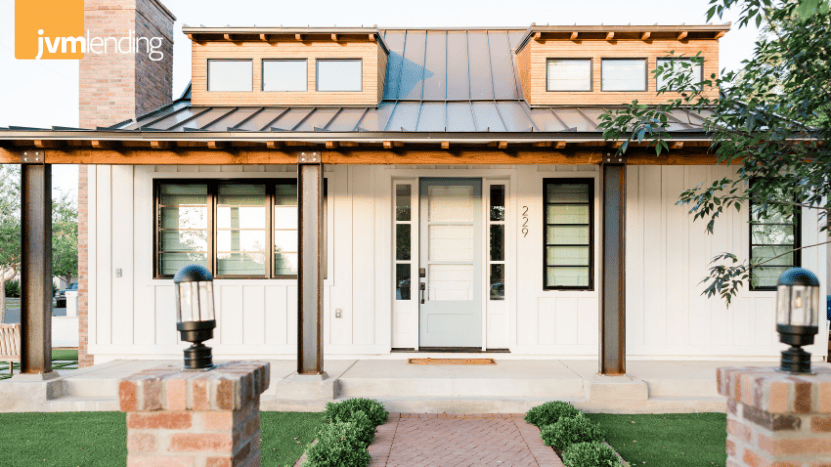
What Is an Investment Property?
An investment property is purchased with the intent to generate income. The amount of income received over time, compared with the cost of buying an investment property, is also knowns as the return on the investment. Income can be generated in two ways: positive cash flow via rental income during ownership, or selling the property at a higher cost than you paid for it (property appreciation). Individuals, as well as business partners and groups of real estate investors are all eligible to purchase investment properties.
How To Know If You’re Ready to Buy an Investment Property
It’s important to remember that the purchase process for an investment property is different compared to buying a primary home. Before deciding to invest, it’s important to make sure you are well-qualified and meet the necessary requirements for the mortgage loan.
Financial Stability
Mortgage lenders typically require at least a 15% down payment. This is because an investment property demands greater financial stability than that of a primary home. When purchasing a primary residence, you can have a down payment as low as 3.5%, like with FHA loans.
Before buying an investment property, you’ll need sufficient funds to cover all the costs of the home purchase (down payment, inspections, appraisal, and closing costs) as well as funds available to cover any repairs or maintenance the property may require.
If you plan on renting the home to tenants and becoming a landlord or rental property manager, it will be your responsibility to complete any home repairs quickly, such as plumbing, electrical, or HVAC repairs. Many states provide protections to tenants and allow them to withhold rent payments if broken utilities are not repaired or if safety issues are not corrected.
Because of this, it’s wise to budget additional money to be prepared for regular and emergency repairs for your property in the short term, as well as the long term.
It’s also important to recognize that expenses associated with your property don’t only begin when the property is occupied or when you assume responsibility for existing residents within a property. Funds need to be allocated for advertising and credit checks to ensure you find well-suited tenants. Great tenants can be an incredible asset to your property; however, a bad tenant can open you up to risk, increase your expenses, and even cause property damage.
Managing A Rental Property
In addition to investing money into your investment property, you’ll also need to invest your time. You are responsible for advertising and finding tenants, managing interviews and background checks, collecting rent payments on time, and keeping up with necessary maintenance and repairs for the home.
Some investment property owners find it necessary and worthwhile to hire a property management company to take care of these management tasks on their behalf. Hiring a property management company does eat into the cash flow of the investment property, but you always want to consider the opportunity cost of your time.
Before purchasing an investment property, you’ll need to ensure you have the time, or money, to maintain and monitor your space, or pay someone else to do it for you.
What To Consider Before Purchasing an Investment Property
Down payments, time, and returns, are only parts of the investment property as a whole.
Housing Market Trends
As an investor, you’ll want to choose a property that will increase in value over time. However, there’s no surefire way to know what the next best location will be for real estate and investment properties. One way to make an informed decision is to watch the housing market indicators and rental trends in an area over time. That way you can compare rental trends and housing market indicators.
Property Taxes For Investment Properties
Property taxes are an unavoidable part of homeownership. These taxes fund local government and communities, as well as organizations like public schools, libraries, fire departments, and other local departments and organizations.
The value of the property dictates the amount you will pay in taxes. A high-valued home will require more in taxes, whereas a low-valued home will pay less. These property taxes are set by state and local government agencies, so depending on the city, your tax rate will vary.
Additionally, some states like California, have regulations in place to keep property tax increases limited to a small percentage, whereas other states like Texas allow the tax collectors to increase taxes based on market values, which can increase dramatically over time.
Your real estate agent or lender will be able to assist in finding out the tax rate and can help calculate what you could expect to pay.
How to Apply for an Investment Property Loan
Mortgage requirements for investment properties are different than owner-occupied financing. The qualification guidelines are more stringent because the secondary market for loans views investment properties as “riskier,” due to total market data analysis that shows that loan default and foreclosure rates are higher for investment properties than they are for primary residences. Likewise, you can expect to see higher interest rates for investment properties compared to primary residences, to compensate lenders for the higher risk profile.
While a primary residence may require as little as 3% for a down payment, an investment property will need a minimum of 15% for a one-unit property and 25% down for a multi-unit property (like a duplex or triplex).
Conventional Investment Property Loans
Eligibility
- Minimum down payment of 15% for single unit properties
- Minimum down payment of 25% for 2-4 unit properties
- 620 Minimum credit score
- Cannot use gift funds
Qualifications
- 49% maximum debt-to-income ratio
- Requires reserve funds
- Can use future rental income to offset mortgage payment (must have current housing expense)
Benefits
- The use of future rental income allows borrowers to afford properties that their current income levels would not support for a primary residence purchase. The future rental income can be documented via a fair market rental survey completed during the appraisal.
Jumbo Investment Property Loans
There are fewer options for jumbo investment properties, as not all jumbo investors will lend on these properties. Guidelines will vary widely from investor to investor, so it is wise to discuss potential options with a lender for these higher loan amounts.
Eligibility
- Less Stringent Investor – Minimum 20% down with 740+ credit
- Best Priced Investor – Requires a minimum 40% down payment with 740+ credit
Is an Investment Property right for you?
There is no one-size-fits-all for mortgage financing. The best way to determine whether an investment property loan makes the most sense for you is to talk to one of our mortgage experts at JVM Lending. Our experts can walk you through monthly payment scenarios, give you current interest rates, and discuss any other questions or concerns you might have.
























